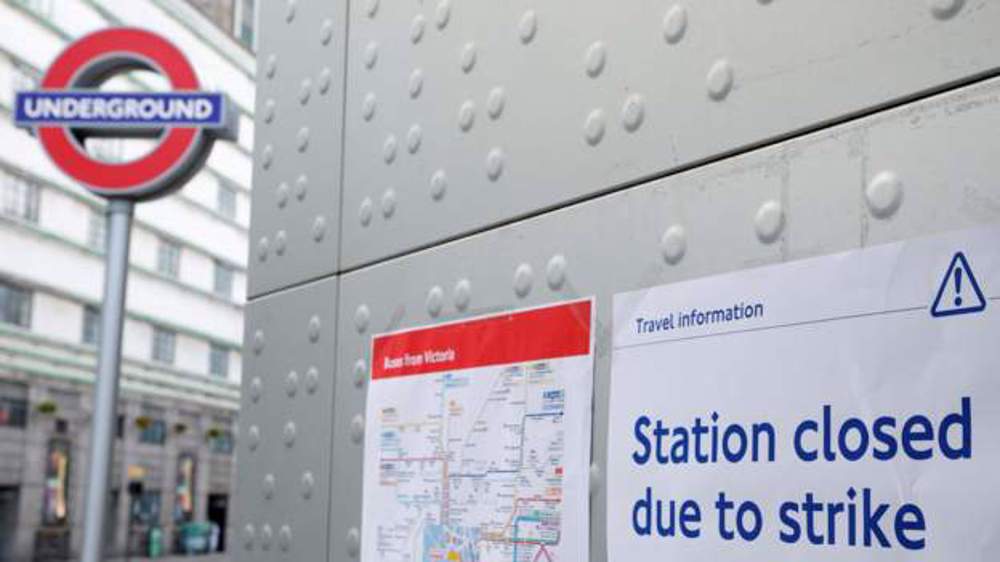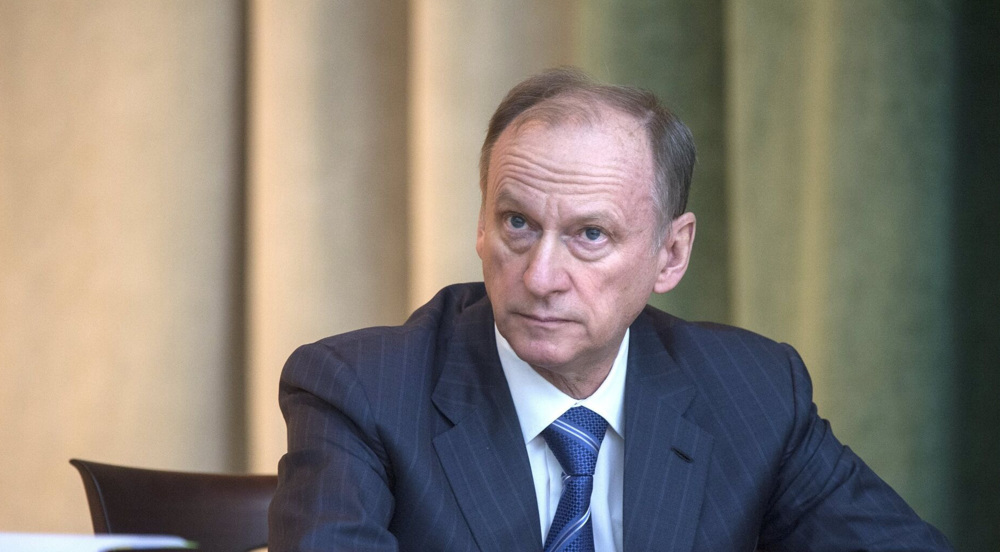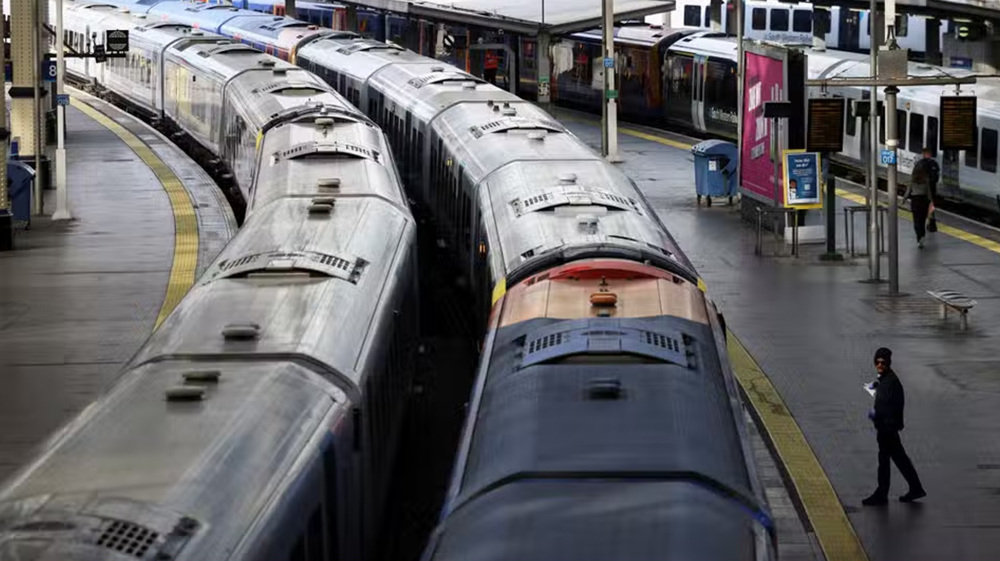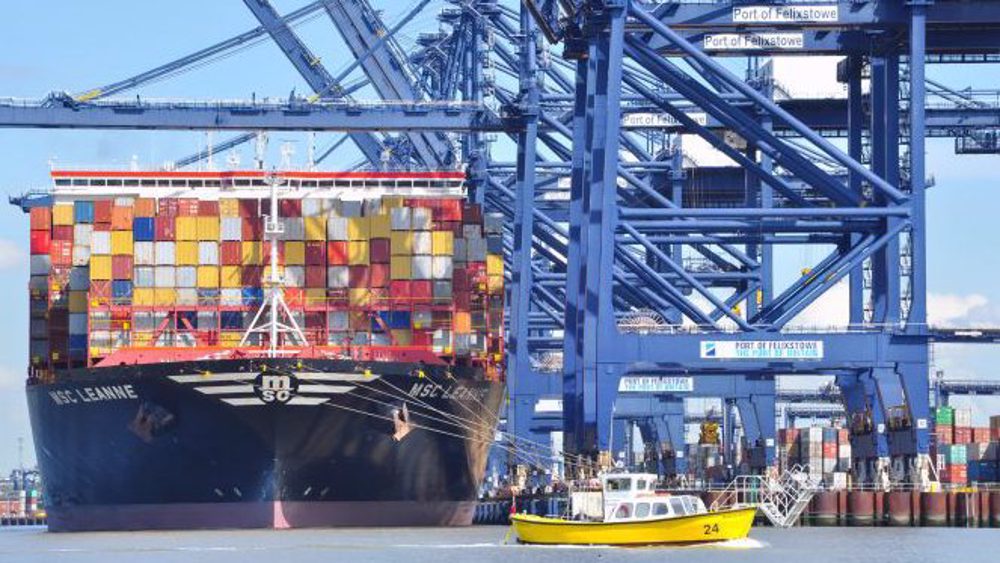London transport network comes to grinding halt amid strike over pay, conditions
London's massive transport network came to a grinding halt on Friday as train and bus workers went on a strike over jobs, pay and conditions amid rising inflation in the United Kingdom.
All of train services on Friday remained either suspended or partly suspended along with hindrances in the bus services too. Services affected by the strike include the London Underground/Overground, Elizabeth line, Trams, DLR and Buses.
Thousands of workers from the wider national rail network walked out of their workplaces on Thursday, when the strikes began and pledged to walk-out again on Saturday, putting commuters across the country to a standstill.
On Thursday, Rail, Maritime and Transport (RMT) members at Network Rail (NR) and 14 train operators, Transport Salaried Staffs Association (TSSA) members at seven companies, and Unite members at NR took industrial action - cancelling 50 per cent of the nation's services.
"It's been manic," a bus driver was quoted as saying, as he reported longer queues on the roads and at bus stops with passengers trying to find alternative routes.
Responding to the strikes, Transport Secretary Grant Shapps said he doesn't see any reason for the "enormously disruptive" action.
The ongoing energy price-driven inflation affecting Britain caused of the ongoing Ukraine-Russia conflict and has caused inflation at 10.1% in July, the highest since February 1982.
The government is afraid of fulfilling the demands of the workers as wage increases may fuel inflation.
"We don't want to be in a 1970s vicious circle where you end up with salaries increasing, inflation increasing and so on and so forth. You never get out of this," Shapps was quoted as saying by the BBC.
The unions defend their workers that they cannot afford to live in the current economic situation.
Strikes are also being planned in other industries like port workers, lawyers, teachers, nurses, firefighters, and waste collection, airport and postal staff
A healthcare lobby group, National Health Service (NHS) predicted on Friday that the upcoming winter Britain could face a “humanitarian crisis” when the difficult choices forced upon low-income households by soaring energy bills could cause serious physical and mental illness.
"Many people could face the awful choice between skipping meals to heat their homes and having to live in cold, damp and very unpleasant conditions," said Matthew Taylor, Chief Executive of the NHS Confederation.
VIDEO | Former prince Andrew arrested by British police
VIDEO | Backlash mounts as Pakistan joins US-led Gaza ‘Board of Peace’
Saudi-Greece fiber optic project to pass through Syria instead of occupied territories: Report
Israel steps up bloodshed in Lebanon
US lawmakers move towards vote on limiting Trump’s Iran strike authority
VIDEO | Hebrew media talk ‘Board of Peace,’ ceasefire, anti-Iran rhetoric, tensions surrounding Lebanon
VIDEO | Rising tensions in West Asia
US: Police criticizes ‘excessive and disproportionate' force used by ICE on protesters
















 This makes it easy to access the Press TV website
This makes it easy to access the Press TV website